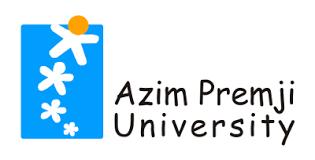
Topics and Regions
Land as a discipline in academics and in policy and development discourses, has remained comparatively under-developed. Land administration continues to be isolated and sectorally divided, over-bureaucratized and often-politicized. Contrary to the need, land governance portrays legal complexity and institutional inadequacy and exclusiveness. Contested landscapes of land governance in India calls for partnerships and innovations to make development more inclusive and prosperity shared. Participation of land-actors and users, especially communities, civil society and private sector are critical, to make land governance equitable and sustainable. Centre for Land Governance attempts to bridge information gaps, create evidence and build platforms for connection and conversations among land-stakeholders, through knowledge engagements around action and policy research, evidence-based advocacy, communication and capacity building
Details
Location
Contributions
Displaying 171 - 180 of 251Land Governance Assessment Framework, Andhra Pradesh, India
This report comprises of a comprehensive assessment of the status of land governance in the Indian state of Andhra Pradesh, by using the World Bank’s Land Governance Assessment Framework (LGAF) during 2013-1014. This report presents its findings. The assessment was taken up in nine distinct thematic areas of land governance as envisaged in the LGAF.
Land Governance Assessment Framework, Odisha, India
This report comprises of a comprehensive assessment of the status of land governance in the Indian state of Odisha, by using the World Bank’s Land Governance Assessment Framework (LGAF) during 2013-1014. This report presents its findings. The assessment was taken up in nine distinct thematic areas of land governance as envisaged in the LGAF.
Improving Land Governance in West Bengal: Land Governance Assessment Framework
This report comprises of a comprehensive assessment of the status of land governance in the Indian state of West Bengal, by using the World Bank’s Land Governance Assessment Framework (LGAF) during 2013-1014. This report presents its findings. The assessment was taken up in nine distinct thematic areas of land governance as envisaged in the LGAF.
Land Governance Assessment Framework, Jharkhand, India
This report comprises of a comprehensive assessment of the status of land governance in the state of Jharkhand, by using the World Bank’s Land Governance Assessment Framework (LGAF) during 2013-1014. This report presents its findings. The assessment was taken up in nine distinct thematic areas of land governance as envisaged in the LGAF.
Land Governance Assessment Framework, Karnataka, India
This report comprises of a comprehensive assessment of the status of land governance in the state of Karnataka, by using the World Bank’s Land Governance Assessment Framework (LGAF) during 2013-1014. This report presents its findings. The assessment was taken up in nine distinct thematic areas of land governance as envisaged in the LGAF.
Azim Premji University
Azim Premji University was established in Karnataka by the Azim Premji University Act 2010 as a not-for-profit University and is recognized by The University Grants Commission (UGC) under Section 2F.
The Karnataka Land Grabbing Prohibition Act, 2011
An Act to provide for measures to curb organized attempts to grab lands whether belonging to the Government, wakf or the Hindu Religious Institutions and Charitable Endowments, local authorities or other statutory or non-statutory bodies owned or controlled or managed by the Government.
State of the World's Forests: Forests and Agriculture- Land-use Challenges and Opportunities
This report prepared by FAO explores the challenges and opportunities represented by the complex interrelationship between forests, agriculture and sustainable development. It demonstrates that the sustainable management of both forests and agriculture, and their integration in land-use plans, is essential for achieving the SDGs, ensuring food security and tackling climate change.



